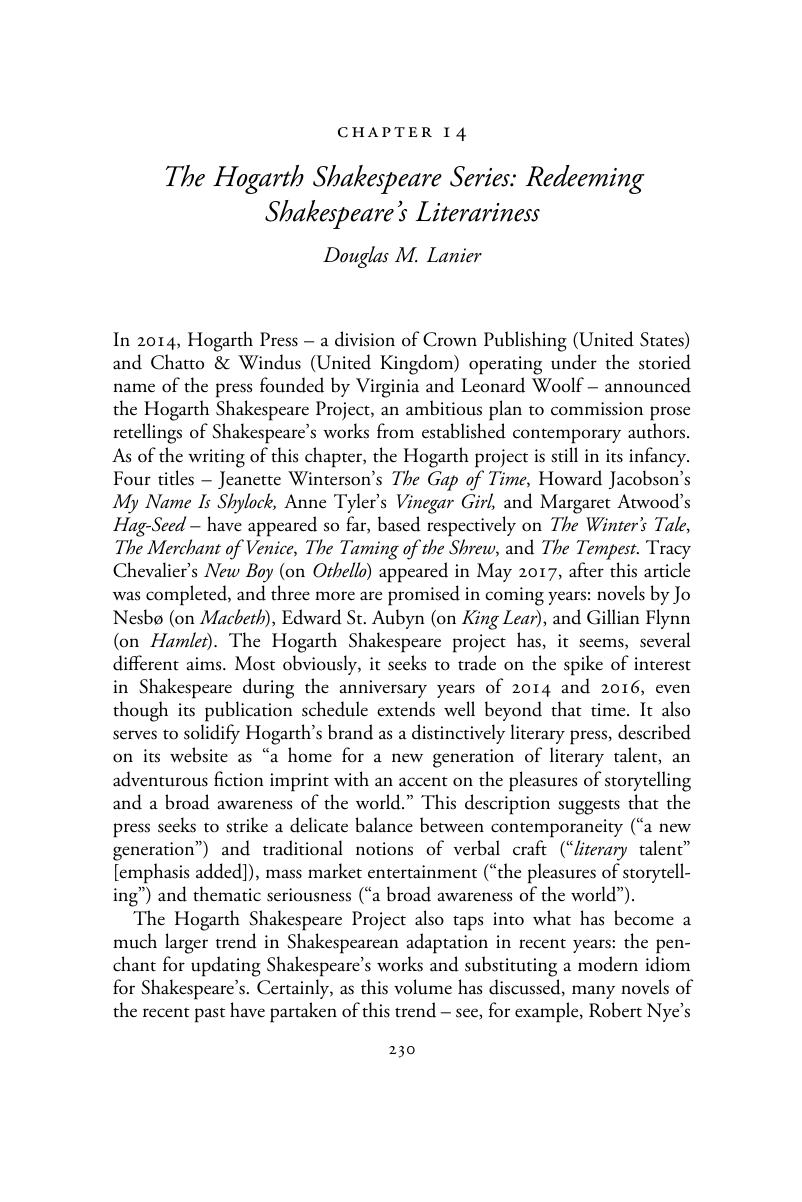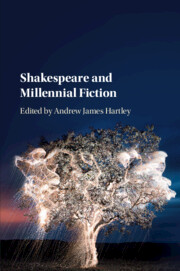Book contents
- Shakespeare and Millennial Fiction
- Shakespeare and Millennial Fiction
- Copyright page
- Contents
- Contributors
- Introduction: “Reason Not the Need!”
- Chapter 1 Hamlet the Dane: “Tell My Story”
- Chapter 2 Shakespeare Found and Lost
- Chapter 3 Shakespeare’s Novel Life: Speech, Text and Dialogue in Recent Shakespearean Fictions
- Chapter 4 The School of (The) Night Circus: Performing Shakespeare Arcana in Novel Forms
- Chapter 5 “A Delicate and Tender Prince”: Hamlet and Millennial Boyhood
- Chapter 6 “How Many Daughters Had Lady Macbeth?”
- Chapter 7 Engaging Ophelia in Early Twenty-First Century Young Adult Fiction
- Chapter 8 Criminal Adaptations: Gender, Genre, and Shakespearean Young Adult Literature
- Chapter 9 A Man with a Map: The Millennial Macbeth
- Chapter 10 Shakespeare and the Post-Millennial Cancer Novel
- Chapter 11 Posthuman Tempests in the Twenty-First Century
- Chapter 12 Stratford-Upon-Web: Shakespeare in Twenty-First-Century Fanfiction
- Chapter 13 The Paranormal Bard: Shakespeare Is/As Undead
- Chapter 14 The Hogarth Shakespeare Series: Redeeming Shakespeare’s Literariness
- List of Referenced Novels
- Index
- References
Chapter 14 - The Hogarth Shakespeare Series: Redeeming Shakespeare’s Literariness
Published online by Cambridge University Press: 04 November 2017
- Shakespeare and Millennial Fiction
- Shakespeare and Millennial Fiction
- Copyright page
- Contents
- Contributors
- Introduction: “Reason Not the Need!”
- Chapter 1 Hamlet the Dane: “Tell My Story”
- Chapter 2 Shakespeare Found and Lost
- Chapter 3 Shakespeare’s Novel Life: Speech, Text and Dialogue in Recent Shakespearean Fictions
- Chapter 4 The School of (The) Night Circus: Performing Shakespeare Arcana in Novel Forms
- Chapter 5 “A Delicate and Tender Prince”: Hamlet and Millennial Boyhood
- Chapter 6 “How Many Daughters Had Lady Macbeth?”
- Chapter 7 Engaging Ophelia in Early Twenty-First Century Young Adult Fiction
- Chapter 8 Criminal Adaptations: Gender, Genre, and Shakespearean Young Adult Literature
- Chapter 9 A Man with a Map: The Millennial Macbeth
- Chapter 10 Shakespeare and the Post-Millennial Cancer Novel
- Chapter 11 Posthuman Tempests in the Twenty-First Century
- Chapter 12 Stratford-Upon-Web: Shakespeare in Twenty-First-Century Fanfiction
- Chapter 13 The Paranormal Bard: Shakespeare Is/As Undead
- Chapter 14 The Hogarth Shakespeare Series: Redeeming Shakespeare’s Literariness
- List of Referenced Novels
- Index
- References
Summary

- Type
- Chapter
- Information
- Shakespeare and Millennial Fiction , pp. 230 - 250Publisher: Cambridge University PressPrint publication year: 2017



